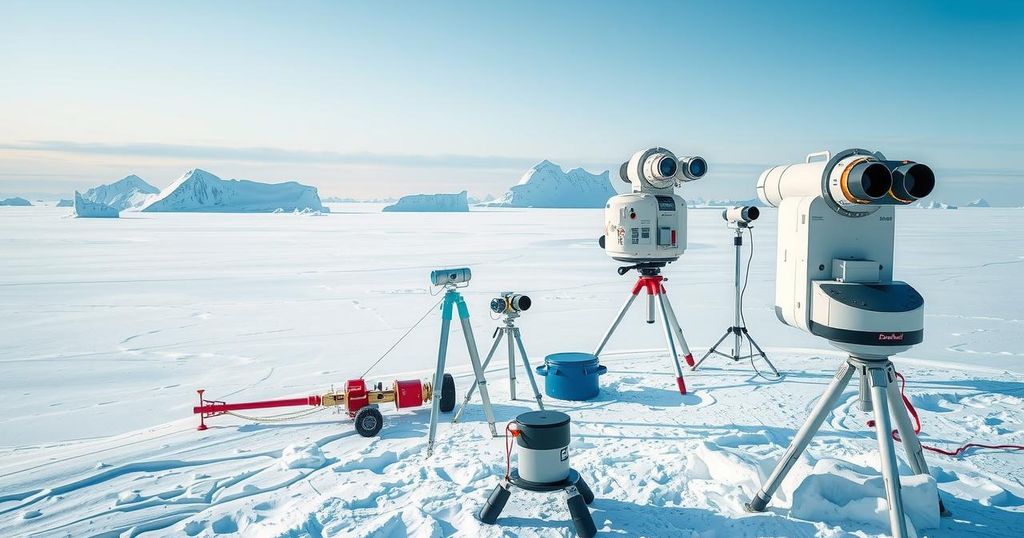Research in Antarctica focuses on climate change, offering insights into global cycles. South Africa’s SANAE IV base plays a role in international collaboration. Significant discoveries, such as the ozone hole and insights from ice cores, highlight the importance of this research. Antarctica’s unique environment is crucial for understanding climate impacts, with consequences for global sea levels and oceanic systems.
In March 2025, a media storm erupted when a researcher at South Africa’s Sanae IV base in Antarctica reported an incident of violence among team members. The Conversation Africa engaged with geomorphologist David William Hedding, who has extensive experience researching in Antarctica, to uncover the nature of such research and its significance.
Currently, Antarctic research primarily focuses on climate change, as this pristine environment serves as an effective indicator of global climate cycles. Its extreme and fragile climate renders it highly responsive to shifts in global atmospheric conditions. Moreover, Antarctica’s relative isolation from human activity allows scientists to observe natural processes with minimal interference, making it an ideal location for scientific inquiry.
Approximately 30 nations operate research stations in Antarctica, contributing to collaborative projects essential for exploring these remote areas. The South African base, SANAE IV, usually hosts between 10 and 12 researchers and is situated in a particularly remote area, about 220 kilometers inland from the ice shelf. The personnel at SANAE IV typically remain in Antarctica for about 15 months, enduring harsh winter conditions during their stay.
Among the most significant discoveries conducted in Antarctica is the identification of the ozone hole in 1985 by British Antarctic Survey scientists, which led to the Montreal Protocol aimed at phasing out ozone-depleting substances. Another crucial development is the analysis of ice cores that can reveal atmospheric conditions over the past 1.2 million years. Understanding historical climate patterns is vital for predicting responses to current human-induced climate changes.
Conducting research in Antarctica proves challenging due to its remoteness, extreme cold, and continuous daylight during summer. Reaching many study sites can be difficult since the distances between research bases are substantial. Furthermore, most scientific activities are carried out during the austral summer when temperatures are somewhat tolerable, presenting a limited window for research operations due to the variability of sea ice.
The significance of scientific research in Antarctica cannot be overstated, as it is closely linked to global systems. The impact of climate change in the region, particularly the melting of land-based ice, contributes to rising sea levels and modifies global ocean currents. This necessitates further examination to understand how terrestrial changes influence oceanic systems, which ultimately affect the entire marine food web. Given the global implications of these changes, studying Antarctica is crucial for society’s resilience and adaptation strategies regarding climate change.
In summary, Antarctica functions as a vital research hub, significantly contributing to our understanding of climate change and its global effects. The isolation and unique conditions of the continent provide researchers with unparalleled opportunities to explore natural systems free from human influence. Furthermore, collaborations among various countries enhance the effectiveness of scientific endeavors in this remote region, shedding light on critical environmental issues that have widespread implications. The ongoing research conducted in Antarctica is essential for developing strategies to cope with the challenges presented by climate change.
Original Source: allafrica.com






